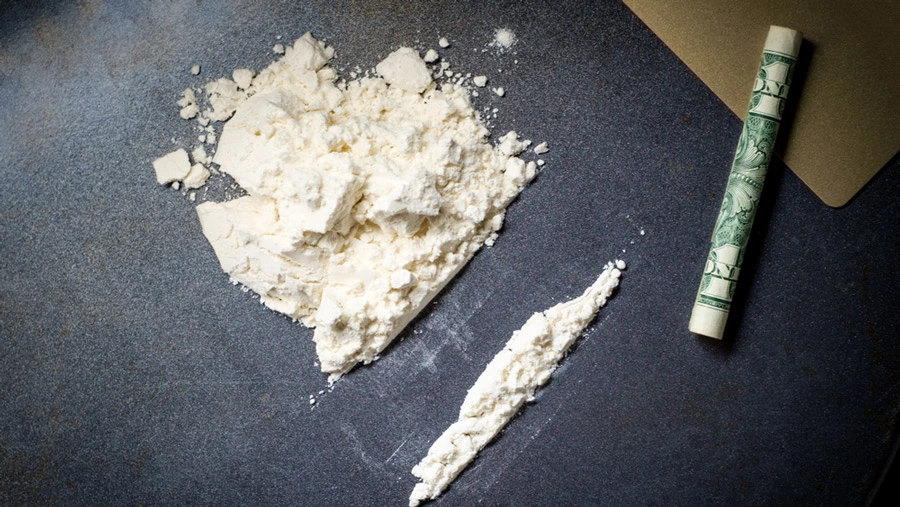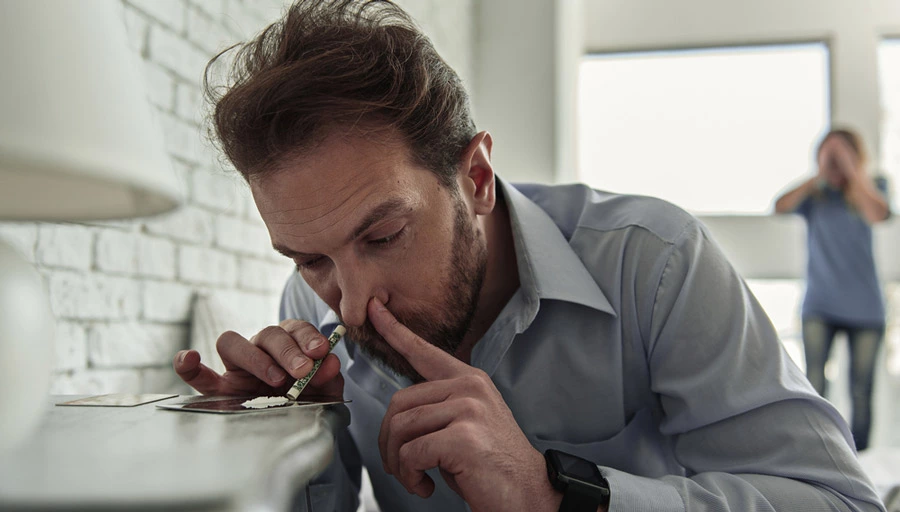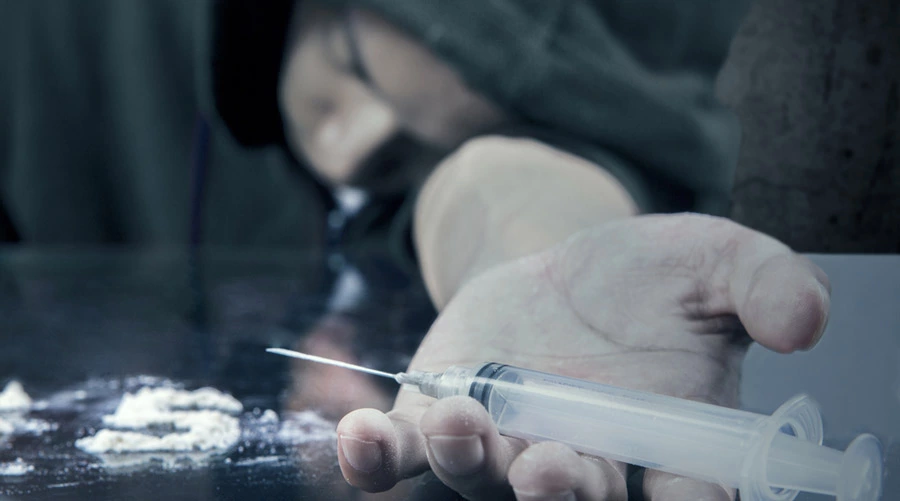The Difference Between Stimulant Drugs and Depressants
When dealing with illicit drugs like cocaine, it can be hard to know exactly how this substance will affect both the mind and body. As a powerful drug, cocaine can have serious effects on the system, especially with prolonged use.
One of the questions many people find themselves asking is, “Is cocaine a stimulant or depressant?” According to the Drug Enforcement Administration (DEA), cocaine is classified as a stimulant and a Schedule II drug.
This means that taking cocaine will produce stimulant effects, such as euphoria, increased energy, and alertness. Of course, while its ability to elevate mood and energy can make it an appealing option to many, there are several hazardous side effects to be aware of when using cocaine.
One particular risk is the drug’s high likelihood of abuse and addiction. If you or a loved one is struggling with cocaine use, it is important to know how you can find help to overcome this addiction.
South Shores Detox and Recovery can help you take the first steps on your path to sobriety, so keep reading to learn more about cocaine and the programs available for help at South Shores!
What Makes Cocaine a Stimulant Drug Instead of a Depressant?
While prescription stimulants will have specific defining features that fit them into this category, illicit drugs like cocaine can be harder to classify. Cocaine has earned itself the title of“party drug” due to its ability to produce a euphoric high and rush of energy.
As one of the most addictive drugs known to exist, it can have both short and long-term effects on those who use it, including its high risk for drug addiction. Unlike depressant drugs, cocaine works by increasing brain activity, making nerve cells communicate to produce more dopamine than would normally be present.
Cocaine and Your Brain Chemistry
Dopamine is the neurotransmitter responsible for activating the brain’s pleasure and reward systems. This interaction with the central nervous system (CNS) prevents dopamine from being recycled, creating the intense euphoria and alertness associated with this drug.
However, as cocaine enters the body, this drug can cause much more than just an enjoyable high. This illicit street drug can also have serious side effects, including increased heart rate and blood pressure. If taken in high doses or over long periods of time, this substance abuse can become life-threatening.
What is the Difference Between Cocaine and Crack Cocaine?

Many people believe that cocaine and crack cocaine are one and the same. However, there are some key distinctions between these two drugs that are important to understand. Both cocaine and crack can be highly addictive, as well as have life-threatening consequences, making it important to know how to differentiate between them.
While both of these drugs are derived from the coca plant which is native to South America, their side effects can differ. Whereas the euphoric properties of cocaine can last for up to a few minutes before fading, crack cocaine is processed in a way that makes it smokeable.
The Immediate Nature of Crack Cocaine
This means it is more potent and can therefore be more intense and long-lasting. Crack cocaine is also considered to be more addictive than regular cocaine, and can cause more severe withdrawal symptoms when a person quits their drug use.
One of the biggest concerns that come with this potency is how easy it is to access crack cocaine. Not only is it more affordable than cocaine, but it is also favored by drug dealers and those who are seeking out the drug to fuel an addiction.
No matter which of these drugs a person is using, it will not take long for physical dependence to form. Once this happens, you will need professional help in order to safely and successfully recover from your stimulant abuse.
What Makes Cocaine Addictive?
When people use cocaine, it releases a large amount of dopamine, a neurotransmitter that is associated with pleasure and reward. This surge of dopamine can be very reinforcing, and people may continue to use cocaine in order to experience this feeling again.
Cocaine also blocks the reuptake of dopamine, which means that dopamine stays in the brain for longer periods of time. This can lead to a build-up of dopamine, further increasing the drug’s addictive potential.
In addition to its effects on dopamine, other neurotransmitters in the brain are affected by cocaine, such as serotonin and norepinephrine. These neurotransmitters play a role in mood, sleep, and movement. Cocaine’s effects on these neurotransmitters can contribute to the drug’s addictive potential by causing changes in mood, sleep patterns, and energy levels.
The combination of these effects makes cocaine a highly addictive drug which can make it difficult to stop using it, even if you want to. If you or someone you know is struggling with cocaine addiction, reach out to us today. We can help your cocaine detox journey overcome your addiction and live a healthy, productive life, drug-free.
Why is Abusing Cocaine So Dangerous?

When it comes to cocaine, the dangers associated with abusing this drug are extensive. Because of how powerful cocaine is, its effects on a person’s physical and mental health can be severe, and even life-threatening.
While this drug can produce feelings of euphoria, this high does not last long and often ends in a crash that can be unpleasant. Because of this, many people will try to take a higher dose of cocaine to try and prolong their high and avoid a severe cocaine comedown. Unfortunately, this behavior can have serious consequences for the person.
It is also important to keep in mind that most street dealers will sell cocaine as a fine white powder that has been cut with other substances, such as talcum powder or other drugs, to increase their profits and make the drug more potent so that their customers keep coming back.
However, this also puts their consumers at risk of fatal overdose, as they have no idea what their cocaine has been laced with, or what a “safe” dose of this product should look like. Synthetic opioids like fentanyl have become particularly popular add-ins to illicitly distributed cocaine, creating a particularly deadly mixture for unsuspecting consumers.
Physical Side Effects of Cocaine Abuse
When it comes to the physical side effects of cocaine abuse, there are a number of health risks associated with this particular drug. When abused over a prolonged period of time, cocaine can cause extensive damage to the heart, increasing your risk of stroke and heart attack.
It can also cause serious harm to your lungs, making it harder to breathe and increasing your risk of developing a respiratory illness. Other common physical side effects associated with cocaine abuse include::
- Increased blood pressure
- Blood vessel constriction
- Collapsing of the veins
- Infections in soft tissue
- Severe bowel decay
- Damaged nerve cells
For those who choose to inject this drug, they will be at an increased risk of contracting HIV, Hepatitis C, and other bloodborne diseases. As many of these health effects can lead to more serious problems, it is important to seek treatment for cocaine abuse.
Psychological Side Effects of Cocaine Drug Abuse
Because cocaine chemically alters the brain, continuing to abuse this drug can lead to a number of psychological effects and mental health issues. Many people who chronically misuse this drug end up developing anxiety, mood swings, depression, insomnia, and even violent or psychotic tendencies.
In severe cases, suicidal ideations and behaviors can also occur, especially for those who may have been struggling with a mental health condition before their cocaine abuse started. Because of the severity of the symptoms caused by long-term cocaine abuse, it is important to seek professional help when attempting to stop using this drug.
What are the Signs and Symptoms of Cocaine Overdose?

One of the biggest risks that come with abusing cocaine, beyond the potential for cocaine psychosis, is the possibility of experiencing a drug overdose. Cocaine is a very dangerous drug, and taking too much of it or mixing cocaine with other drugs can lead to life-threatening consequences.
Common signs and symptoms of a cocaine overdose include slowed breathing, respiratory failure, paranoia and hallucinations, high body temperature, heart attack, cardiac arrest, and even death.
If you or someone else is experiencing any of these symptoms after using cocaine, it is essential to seek emergency medical help as soon as possible.
How to Recognize a Cocaine Use Disorder
Cocaine addiction is a serious problem that can have devastating consequences for you and your loved ones. If you are concerned that you or someone you know may be struggling with cocaine addiction, it is important to be aware of the signs and symptoms of cocaine abuse.
Some of the most common signs associated with cocaine addiction include:
- Increased risk-taking behaviors, such as driving while under the influence.
- Lying about or hiding drug use from friends and family.
- Stealing money to continue funding your drug use.
- Spending more time with people who use drugs.
- Neglecting responsibilities at work, home, or school.
- Withdrawing from friends and family members.
- No longer participating in previously enjoyable activities.
- Engaging in risky sexual behavior due to drug use.
If you notice any of these signs in yourself or someone else, it is important to address these concerns. Cocaine addiction is a treatable condition, but it is important to get help early. At South Shores Detox and Recovery, we can help you overcome your cocaine addiction and achieve long-term sobriety.
Cocaine Addiction Treatment at South Shores Detox and Recovery

Cocaine addiction is a complex disorder that can be difficult to treat. There is no one-size-fits-all approach, and the best treatment plan will vary depending on your individual needs. When you choose to seek treatment at our rehab facility, your recovery process may include a variety of different services such as:
- Medical detox: If you experience withdrawal symptoms during the recovery process, our licensed medical professionals can provide support to manage and even prevent these adverse effects.
- Inpatient treatment: For those who have more severe substance use disorders, our residential program can provide the intensive support and structure you need to successfully stop using cocaine.
- Outpatient treatment: If you need more flexible treatment or require less support to live a drug-free life, our outpatient programs can provide you with recovery tools and resources, without requiring you to stay at our facility.
- Behavioral therapy: These services can help change your behaviors and thought patterns related to cocaine use. Cognitive-behavioral therapy (CBT) is one common type of behavioral therapy for cocaine addiction and helps you identify and challenge negative thoughts and beliefs, and to develop coping skills for cravings and triggers.
- Medication-assisted treatment: Medications can be used to help reduce cravings and withdrawal symptoms, and to make it easier for people to stay in treatment.
The most effective treatment for cocaine addiction is a combination of approaches to help manage withdrawal symptoms and support your recovery process. At our recovery center, our qualified and extensive staff will help you develop a treatment plan that is tailored to your individual needs.
Overcome Cocaine at South Shores Detox and Recovery!
Now that you know how cocaine results in serious damage to yourself and your loved ones, you are ready to seek professional medical advice on how you can move forward. At South Shores Detox and Recovery, we offer the extensive support and treatment services you need to overcome your addiction.
Our effective and comprehensive treatment programs address all drug types and addiction issues, including cocaine abuse. You can reach out to one of our dedicated recovery representatives today to learn more about how our program can be a great fit for you!

